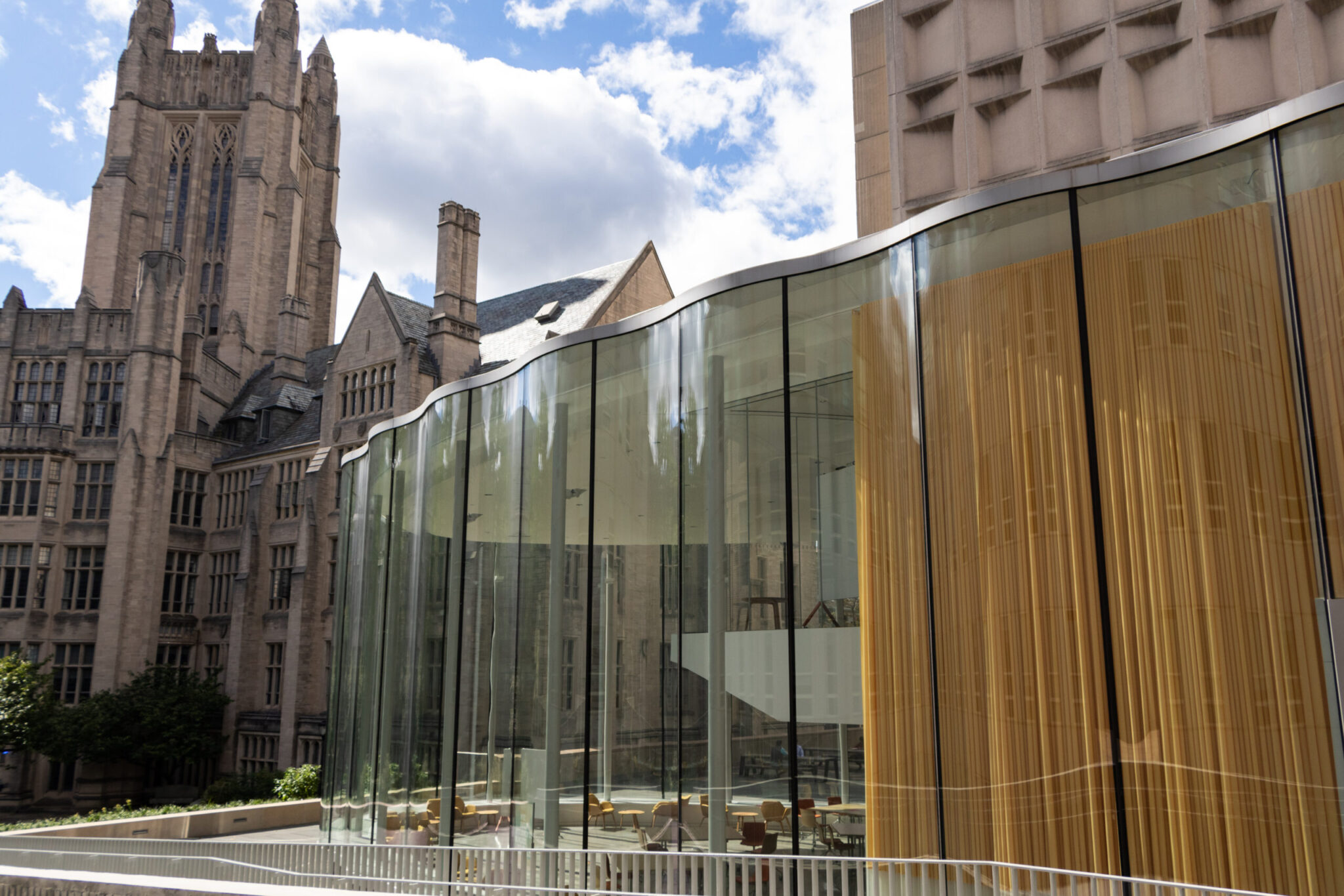Google VP talks cybersecurity at Tsai CITY event
At an event Thursday, Google vice president of privacy, safety and security engineering Royal Hansen ’97 spoke about artificial intelligence and cybersecurity.

Zoe Berg, Senior Photographer
Royal Hansen ’97, Google’s vice president of privacy, safety and security engineering, visited Tsai Center for Innovative Thinking at Yale on Thursday to speak about cybersecurity and artificial intelligence.
As part of the Dean’s Invited Speaker Series through the Yale School of Engineering and Applied Sciences, the event featured a talk by Hansen on safety for artificial intelligence, followed by a discussion facilitated by Dean Jeffrey Brock ’92. During his talk, Hansen described how artificial intelligence and machine learning have evolved since his time as a Yale undergraduate in the 1990s. Now, he said, the technology is used widely, from automating app safety to filtering out spam emails and screening for breast cancer.
But the development of AI can also have far-reaching implications, Hansen added.
“We in technology will be coding the laws of today and tomorrow,” he said. “Will the spirit of the law actually meet the spirit of the regulation?”
Hansen highlighted the role of machine learning in Google products like the Google Play Store — where the company scans 28 billion app-to-device pairs to make sure apps meet safety standards — and Gmail, which uses machine learning to efficiently sort large quantities of data and block spam. He described how Google’s Chrome web browser uses machine learning to prevent cybersecurity threats, a feature that is now featured on Safari and Firefox.
Beyond Google, Hansen also spoke about how artificial intelligence could play a role in secure technology and digital infrastructure.
“We’re headed to a world where the structures of life and society are digitized, and the whole supply chain needs to be safe,” said Hansen. “The mistakes here are very different from when I miss a spam message.”
Those risks, Hansen said, can impact governments and economies across the world.
Hansen said that after visiting Poland and working with Eastern European cybersecurity experts over the past 18 months, he learned how cyber attacks have disrupted digital supply chains in Ukraine for years, even predating Russia’s invasion of Ukraine in 2022.
“I think we’re in a unique moment where the infrastructure for the 21st century is being laid down,” Hansen said.
Hansen stressed the importance of continued cybersecurity research and cautioned against hasty development of artificial intelligence technologies.
At Google, he said, they use a set of principles known as the Secure AI Framework to help mitigate those risks by establishing guidelines for secure AI systems.
Brock said that artificial intelligence creates a new medium for individuals to engage with technology.
“This changes the way anyone can interact with a computer, whether it’s someone who wants to write a technical piece of code, or somebody who just kind of wants to take an idea and turn it into something,” Brock said. “The fact that we’re able to have a conversation as bizarre as this one represents a turning point in the evolution of the history of these technologies.”
Students also expressed that they thought Hansen’s talk was informative.
Braden Wong ’25, who attended the talk, also said the event served as a social gathering place for peers interested in computer science.
“The work in privacy and cybersecurity is an interesting topic,” said Wong. “It’s good to see friends, so there’s always people you run into that you know.”
The Yale School of Engineering and Applied Science is located at 17 Hillhouse Ave.







